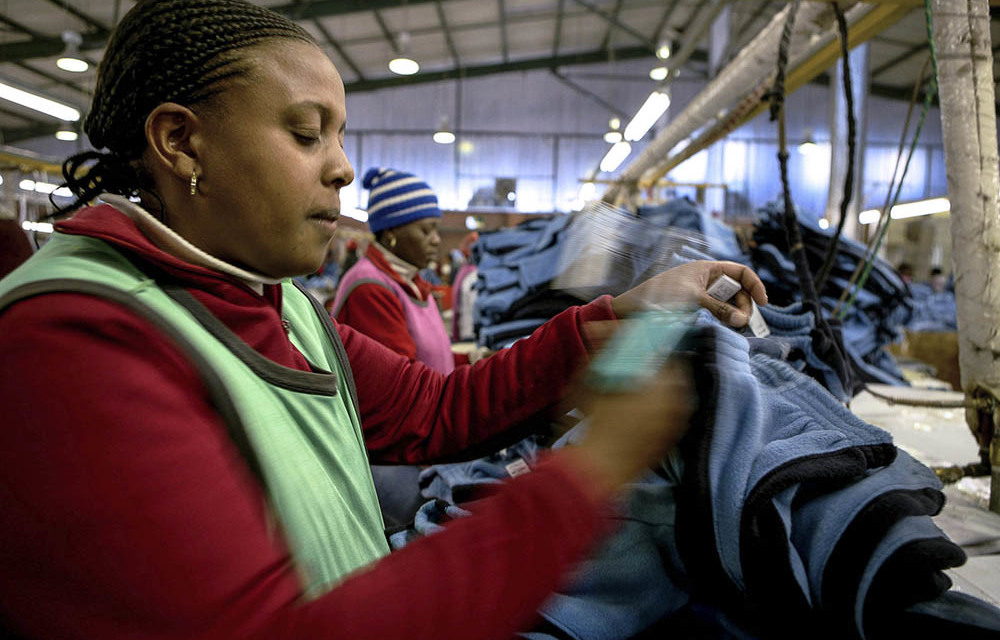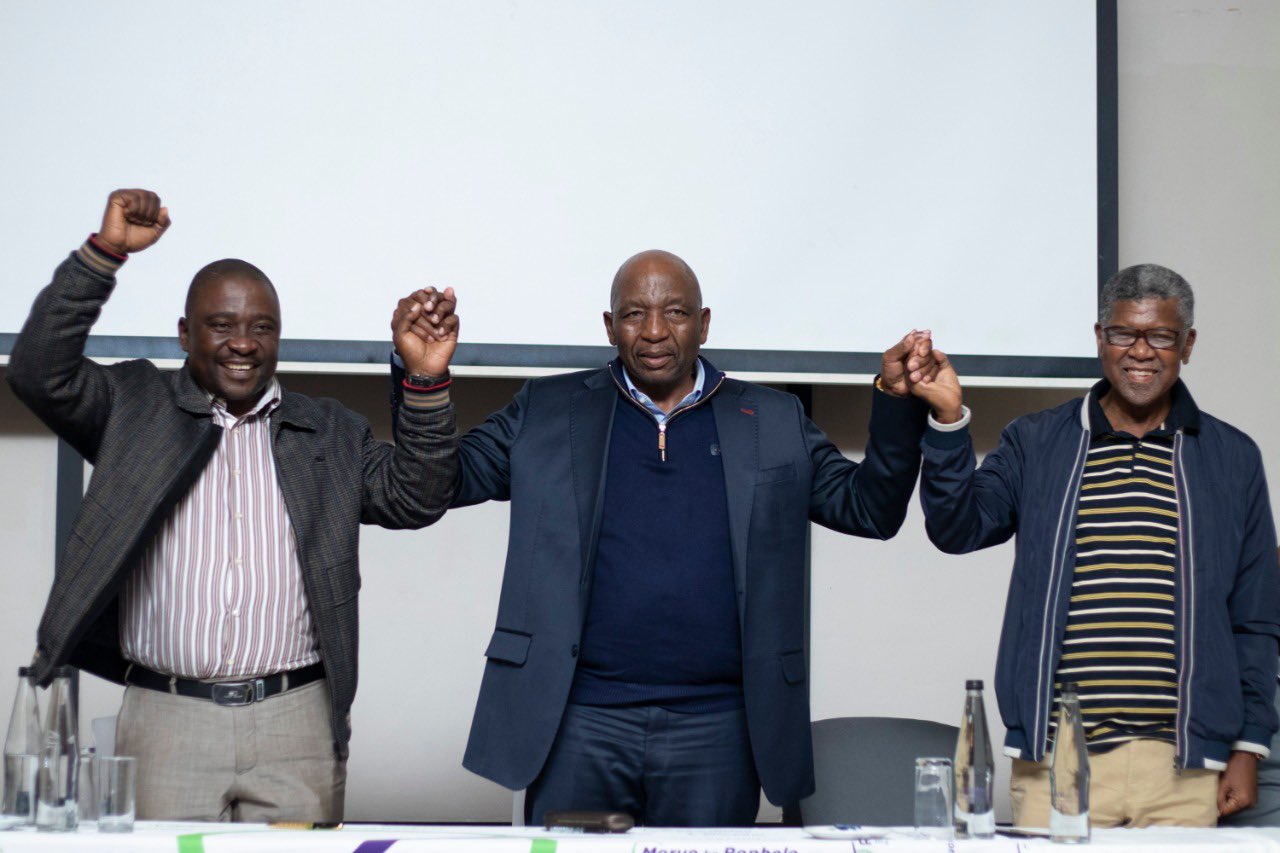The cooling of the political temperatures came with the BAP joining the bandwagon after a season of political agitation and chess games, reflecting political anomalies in the system of political governance of Lesotho:
Motions, court cases, intrigues, backstabbing, delaying tactics, commodification of parliamentary seats. Suspensions, firings, defiance in the RFP and public statements. Lobbying, press briefings, arrests and rebuttals and resignations and security agencies’ stunts; the political minefield has been busy this festive season

Mr Mzimkhulu Sithetho
Managing Director of the Governance Institute for Sustainable Development and Editor-In-Chief of thizkingdom.com

Since the highly-contested election of October 2022, the political climate has been characterised by a lull, with what one could assume to be the election victory honeymoon for the RFP and allies, while it was the search Classification of article: Politics for coping mechanisms with the election loss by the opposition on the other side.
Meanwhile, there was a wait-and-see attitude adopted by the opposition,regrouping and recouping energies to remerge strong, while keeping fingers crossed for the new regime to make policy pronouncements.
Once parliament opened, it was clear the honeymoon was over and the time for reckoning and facing the reality of ruling on the one hand, and coming face-to-face with an unhappy opposition that would do anything possible to undress the new regime.
Bolstered by the victory, the RFP and governing alliance put up a united face to rally the resuscitation of the Bill, but had to be awake to a belligerent and unrelenting opposition.
A series of intrigues had happened with each side, particularly the opposition firing their salvo to undermine everything that the ruling elite out forth as a proposal to salvage the national reforms.
The intervention by the diplomatic community, supported by the civil society and the faith-based sector seemed to not stir the indefatigable opposition, whose strength was growing steadily to throw into oblivion, conceited efforts to see the reforms through.
It was like the opposition had sworn that they would subvert every government effort to move forward with the reforms. This was given credence by the overt sabotage of the consensus-making efforts between the opposition, the government and the senate on the reforms. They dodged every consensus-making meeting organised to reach common ground on the reforms.
For the opposition, one could assume that they were recovering from the loss of the election and were sharpening their spears to pierce the policy directions dictates by the new regime.
The new regime, formed by political novices, started off at a snail’s pace, placing the national reforms top of the list of priorities for the government. The new government engaged in a series of consultations with all stakeholders to sell their approach to the stakeholders and to get their views.
However, one of the key stakeholders, the opposition political class, came out of its cocoon and showed the new regime what alternative approach they preferred on how the reform process could unfold.
They put their own cards on the table on the direction of the reforms, particularly on the 10 th Constitutional Amendment Bill 2022. The opposition leaders demonstrated that they were keen to work as an alliance to face the other side of the political aisle, the governing party and its allies.
The Government side was made of the key coalition partners - main coalition leader, Revolution for Prosperity (RFP), Alliance of Democrats (AD) and the Movement for Economic Change (MEC).
Other supportive parties included the Lesotho Congress for Democracy (LCD), Hope, United for Change (UFC) and the Lesotho People’s Congress (LPC).
Top of the agenda was to see the 10 th Constitutional Amendment Bill 2022 resuscitated by being tabled in Parliament, but it was forestalled by the opposition parties’ intrigues and chess game played through truancy gimmicks to derail the tabling of the Bill.
There came the local government elections in the end of September 2023. It appeared the parties had been ill-prepared to campaign for the local government polls. Meanwhile, this was also aggravated by the continued bickering and low-pace electoral and voter education ahead of the election.
The vibe had not been steered by the election management agency, civil society and the media. This clearly portended a low voter turnout, occasioned by high voter apathy. Indeed, voter apathy had adversely crippled the local government poll, to the extent that voter turnout was a disaster.
Meanwhile, the RFP and its allies walked a tight rope on the local government election as they dismally performed. The main coalition government leader, the RFP performed hardly well though it got the highest votes in comparison with counterparts.
The local government election result brought a smile on the face of the Leaders of the Democratic Congress (DC), Mathibeli Mokhothu, whose party made a good show in the election. The DC came out number two, following the RFP, with a slight margin. Whether the local government election result had a telling on the contesting parties or not, it will show itself as time passes by. Now the eyes are on the road to the 2027 national poll.
The intrigues and backstabbing
The winter recess seemed to provide a grand platform for the opposition to rally together and plan to topple the regime. It seemed one of the strategies was to capitalise on the divisions and obvious wrangling within the RFP.
There had been bad blood between the leadership of the RFP and the rank-and-file in parliament on the manner the party is managed. There had been overtures from disgruntled RFP Members of Parliament (MPs), who, on different occasions, came out to the public to oppose their party or put some political stunts that irked the leadership.
The RFP got stabled on the back in its own backyard by its own sibling. Some of those who, from the start, showed some disdain to how the party affairs were run are the Matlakeng Constituency MP, Dr Mahali Phamotse, Abia Constituency MP, Makhalanyane and …
It became clear that the trip and a handful of others were intent to subvert the party and go to bed with the opposition, leaving the RFP with an egg on its face. It was clear after the reopening of parliament, after returning from the winter recess, that all was not well in the ruling party. Immediately, the Speaker in the National Assembly, Hon Tlohang Sekhamane announced that the Bill was not to form part of the business until the Appeal Court had dealt with a constitutional challenge by a Mosotho man.
Motions, court cases, chess game and delaying tactics
A motion of no confidence had been thrown into the dice arena, resting the strength of the RFP coalition. It hit a perfect storm as the opposition claimed a record of 61 MPs, which is the 50+1 per cent required to form government.
A half dozen of MPs had crossed the Rubicon, taking arms against their own party, the RFP. Three of them had been shown the door by the party executive, for outright defiance and showing sympathy to the opposition ahead of the no confidence motion.
Following this no confidence motion and prospects for its success, it opened floodgates for more motions. The opposition was now bolstered and re-energised more than ever before. It was seeing the RFP-led coalition on its knees and occupying state house.
There was press briefing after press briefing to provide updates and also to steal the limelight. The political vibe had been spurred to high levels and temperatures were also on the rise, more on the ruling side.
The ruling side was now panicking as it was seeing power slip through their fingers within a wink. The political chess game started in earnest, with sleepless nights being spent navigating working political formulas and machinations to trick the other side. Basotho were compelled to be next to their radio sets, WhatsApp groups to grabble every opportunity to not lag behind. At this time, the sun had set for the ruling side, while it was a new dawn for the opposition side.
The serious chess game played placed individuals on either of two sides of the aisle, each side pitted against one another. On a chessboard, which is a platform where the chess game is placed and is an equivalent of a political playground. In chess game, like it is on a political playground involves deception, feints and bold actions.
Commodification of parliamentary seats, military stunt and goal shifting by players
Any political chess game is four-dimensional in character and has numerous players. The four dimensions are hard power, held through the military and this is the preserve of the ruling party or a coalition of parties.
Much as the military’s primary role is to protect the nation from external attack, most of the time, the army serves the ruling party and protects it against the opposition. This reality played out when three security agencies - they army, police and intelligence converged and crafted an untimely, harsh and impulsive statement for the opposition, warning them that they will not allow the toping of the government.
This act and premature pronouncement met wide criticism from across a wide sector of society, which expression the opposing view that it was reminiscent of usurping and undermining parliamentary processes.
The second dimension of the chess game is that of the narrative created around the on-going shenanigans. Each side has been trying to craft a narrative that will appeal to the voters and the international community.
The series of parallel press conferences held by both sides have communicated parallel messages, but talking to the same issues. The narratives are intended to shape public opinion in favour of either side.
The perpetrators of the political quagmire, which is the opposition, conveyed a message that sought to craft a narrative that the legitimate government’s mandate conferred by the voters was being unceremoniously and unwarrantedly usurped using illegal means.
This narrative sought to paint a picture that people had cast their votes in the previous polls and in now, instead of giving the ruling parties an opportunity to rule, the opposition was taking away the voters’ power, which they had vested in the ruling parties. The narratives so created the intention of shaping the thinking with a lot of misinformation and disinformation perpetrated on the social media platforms - Facebook, X, and on the various WhatsApp groups.
The third dimension of power during the chess game was the trade in MPs to add the numbers. The last week or so has been largely a numbers’ game, such that if anyone on either side of the political aisle surfaced as being on top, fears were that he or she has seized the reins of power.
Therefore, the parliamentary seats, which Basotho have bestowed on their representatives, were on sale. A lot of rumour-mongering around MPs who have been sold for a penny took centre stage. The biblical Judas Iscariot-ism was revived as a lot of traitorship, betrayal, chicanery and self-aggrandisement were all at play. There were rumours of the RFP MPs, beside those expelled having received M2 million in handshake for supporting the other side.
The fourth and last dimension of the chess game is that of the degree of information flow on any medium or platform - radio, television, newspapers and most importantly, as earlier mentioned social media spaces.
The Facebook, X, WhatsApp and others were flooded by thousands of messages spewed from various sources. These influxes of messages hardly communicated the truth, but carefully crafted disinformation and misinformation intended to shape the narrative as earlier indicated.
The cooling of the political temperatures
The cooling of the political temperatures came slightly with the BAP joining the bandwagon by relenting to a series of courtships to join the Governing bloc. It did and was awarded a few ministries to lead - the energy and sports and recreation ministry. Beneficiaries of this political settlement between the governing side and the BAP have been the party’s leader, Professor Nqosa Mahao and his deputy Motlatsi Maqelepo who have taken the two ministries respectively.
Most Read
New coalition government-in-waiting unveiled

The cooling of the political temperatures came with the BAP joining the bandwagon after a season of political agitation and chess games, reflecting political anomalies in the system of political governance of Lesotho:

A Comprehensive Analysis of Lesotho's Textiles and Garment Sector

Related Stories
Opinion Vote Polls
Do you think the existing government is going in the right direction to benefit the people of the country?
Subscribe for your daily newsletters
Enter your email to subscribe to our newsletter.

